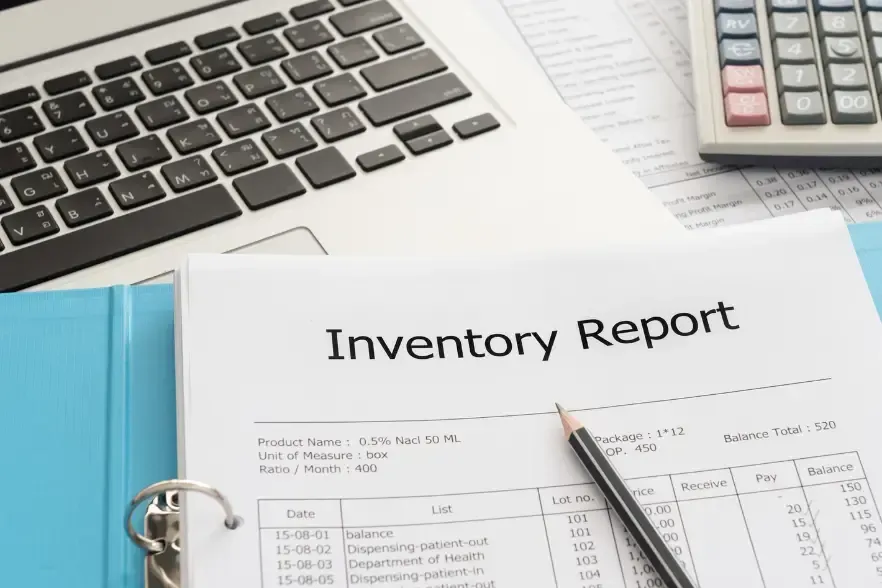CPA Strategies for Efficient Inventory Management

Insights into how CPAs can help businesses optimize inventory management from a financial perspective.
In the ever-evolving realm of business, the efficient management of inventory emerges as a critical factor influencing sustained success. Certified Public Accountants (CPAs) play a pivotal role in guiding businesses through the intricacies of inventory control while optimizing financial performance. In this comprehensive exploration, we delve into the multifaceted strategies that CPAs employ, providing valuable insights for businesses seeking to enhance their financial prowess through refined inventory management.
Unlocking Financial Insights: The Role of CPAs
At the core of inventory management lies a profound understanding of its financial implications. CPAs excel at dissecting the direct and indirect costs associated with holding inventory. This encompasses storage expenses, insurance, and the often-overlooked opportunity cost of tied-up capital.
Key Insight:
By unraveling the financial intricacies, businesses gain a nuanced perspective, enabling them to make informed decisions about the volume and nature of inventory, ultimately minimizing unnecessary expenses.
Embracing Lean Operations: Just-In-Time (JIT) Inventory Systems
CPAs champion the adoption of Just-In-Time (JIT) inventory systems—a strategy designed to curtail excess stock levels. This approach ensures that businesses procure and receive inventory precisely when needed, thereby minimizing holding costs and fostering a healthier cash flow.
Financial Optimization:
JIT systems empower businesses to strike a delicate balance between meeting customer demand and evading the financial burden of excess inventory, leading to enhanced financial optimization.
Harnessing Technology for Real-Time Precision
Modern CPAs advocate for the seamless integration of technology into inventory management. By leveraging advanced software solutions, businesses can monitor inventory levels, track sales trends, and evaluate supplier performance in real time.
Technological Advantage:
Accurate and timely information empowers businesses to make data-driven decisions, preventing stockouts and overstock situations, ultimately contributing to enhanced financial acumen.
Strategic Prioritization: The ABC Analysis Approach
CPAs endorse the implementation of ABC analysis, a classification system categorizing inventory into three groups: A (high-value items), B (moderate-value items), and C (low-value items). This strategic prioritization allows businesses to allocate resources efficiently, focusing on optimizing the management of high-value items.
Value-Centric Approach:
By concentrating efforts on high-value items, businesses can significantly impact their bottom line, amplifying their overall financial efficiency.
Negotiating Financial Leverage: Favorable Supplier Payment Terms
CPAs actively engage in negotiations with suppliers to secure favorable payment terms. These negotiations may involve extended payment periods, bulk purchase discounts, or other arrangements that favor the financial health of the business.
Financial Empowerment:
Strategic negotiations with suppliers can contribute to better cash flow management, improved financial liquidity, and a strengthened financial position for businesses.
Continuous Adaptation: Monitoring and Adjustment Strategies
The role of a CPA extends beyond initial strategies; they continuously monitor inventory performance and adapt strategies as needed. This proactive approach ensures that businesses remain agile in the face of market changes and evolving financial landscapes.
Adaptive Advantage:
Regular reviews and adjustments guarantee that inventory management strategies align with the current financial goals and market conditions, providing an adaptive advantage in a dynamic business environment.
In conclusion, Certified Public Accountants (CPAs) emerge as the indispensable architects of financial efficiency in the intricate landscape of inventory management. Their strategic insights and multifaceted approaches provide businesses with a comprehensive roadmap to success. By wholeheartedly embracing these meticulously crafted strategies, organizations position themselves to not only attain but also surpass optimal inventory levels, fostering a cascade of positive effects throughout their financial framework.
The transformative impact extends beyond mere inventory control. CPAs, with their keen financial acumen, contribute to the enhancement of cash flow dynamics within a business. The strategies they champion, such as the implementation of Just-In-Time inventory systems and negotiation of favorable payment terms with suppliers, serve as catalysts for improved liquidity. This, in turn, empowers businesses to navigate financial waters with greater agility, seizing opportunities and weathering challenges with confidence.
Moreover, the ripple effect of incorporating CPA insights resonates profoundly in the realm of profitability. The meticulous categorization and prioritization facilitated by strategies like ABC analysis ensure that resources are allocated judiciously, with a targeted focus on high-value items. This intentional approach not only minimizes wastage but also amplifies the revenue-generating potential of the inventory. As a result, businesses can witness a significant uptick in their bottom line, signaling the tangible impact of CPAs as stewards of financial prosperity.
The incorporation of CPA insights signifies more than just a tactical maneuver; it symbolizes a decisive step towards financial excellence. The ongoing partnership between businesses and CPAs, characterized by continuous monitoring and adaptation, creates a synergy that fortifies financial structures against the unpredictable currents of the market. It establishes a foundation for sustained growth, enabling organizations to not only navigate the present but also anticipate and capitalize on future opportunities.
In essence, CPAs are not merely financial advisors; they are strategic partners guiding businesses through the intricate dance of inventory management. Their role goes beyond number-crunching; it is about sculpting a financial narrative that propels businesses towards enduring success. As businesses embark on this journey hand-in-hand with CPAs, they equip themselves not just with strategies but with a mindset of financial acuity that permeates every facet of their operations. The result is not just efficiency; it is a symphony of financial excellence harmonized by the expertise of CPAs in the dynamic orchestration of inventory management.
Andrea Ward, CPA
Andrea officially began her accounting career in 1987. But it all began much earlier than that as a kid when she meticulously budgeted her allowance to buy really cool toys. Since then, she has earned Cum Laude honors with a Bachelor in Business Administration, with equivalent minors in Finance and Economics from Texas A&M University. A CPA and Registered Investment Advisor, Andrea loves helping people accumulate wealth.
Popular Posts
Recent Posts












